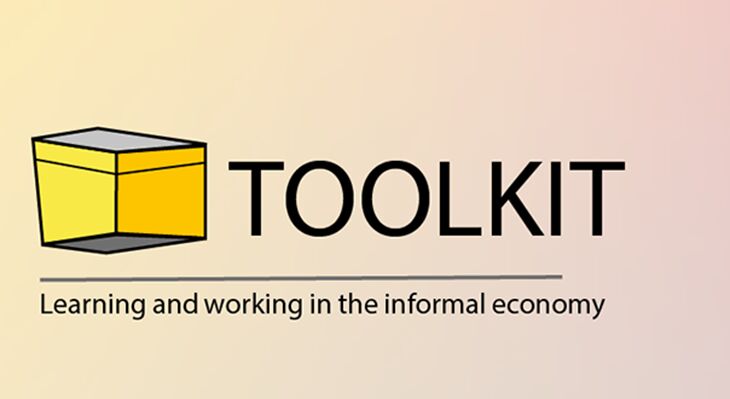GIZ publishes updated “Toolkit Learning and Working in the Informal Economy”
How do workers in the informal economy acquire the skills and competencies they need to do their jobs? What scope for action does this provide for public TVET systems as well as for international VET cooperation? Answers in the updated GIZ Toolkit "Learning and working in the informal economy".
Some 2 billion people worldwide work in the informal economy. That is more than 60 percent of all employed persons. While informal employment plays a rather subordinate role in Germany and Europe, it is often the most common form of work in emerging and developing countries. Characteristic of informal employment is the lack of formal contracts and other regulations as well as often dangerous and insecure working conditions. At the same time, however, the informal economy provides income where formal jobs are not available in sufficient numbers and enables young people to gain initial work experience.
But how do workers in the informal economy acquire the skills and competencies they need to do their jobs? What scope for action does this provide for public technical and vocational education and training (TVET) systems as well as for international VET cooperation? The toolkit provides possible answers to these and other questions. One thing is certain: TVET is a crucial instrument for rendering informal forms of employment productive and decent. In the long term, TVET also helps to enable the transition to the formal labour market.
All content of the Toolkit was revised, and a new, innovative design was chosen. In addition, new chapters have been written on current issues, including the impact of digitisation on the informal economy, the potential of digital learning tools for informal target groups as well as informal employment in the context of flight and migration.
The updated “Toolkit Learning and Working in the Informal Economy” has been available for download since April. The publication by the Deutsche Gesellschaft für Internationale Zusammenarbeit (GIZ) was extensively updated on behalf of the German Federal Ministry for Economic Cooperation and Development (BMZ) and republished in an interactive format. The Toolkit provides extensive information on vocational education and training in the context of the informal economy and presents practical examples of German development cooperation in a clear and concise way.
